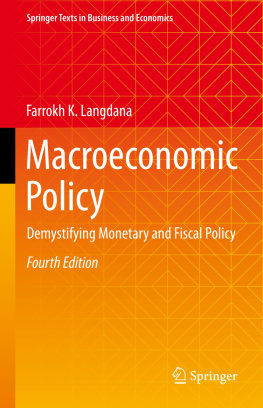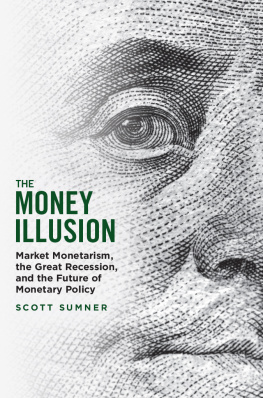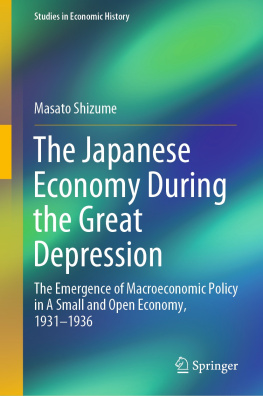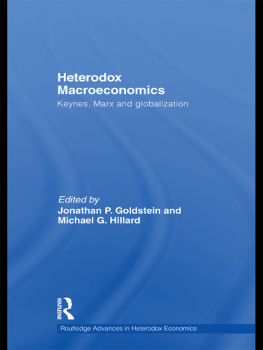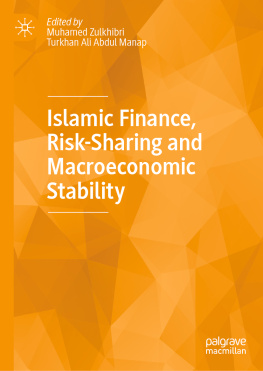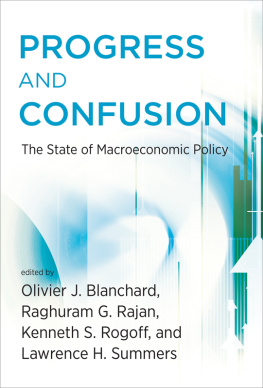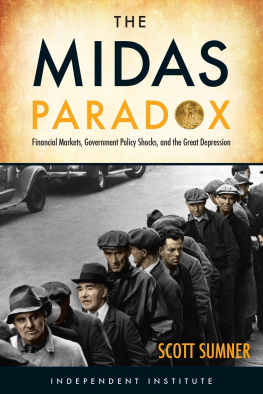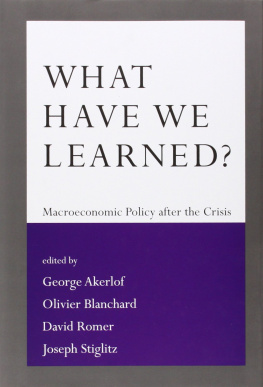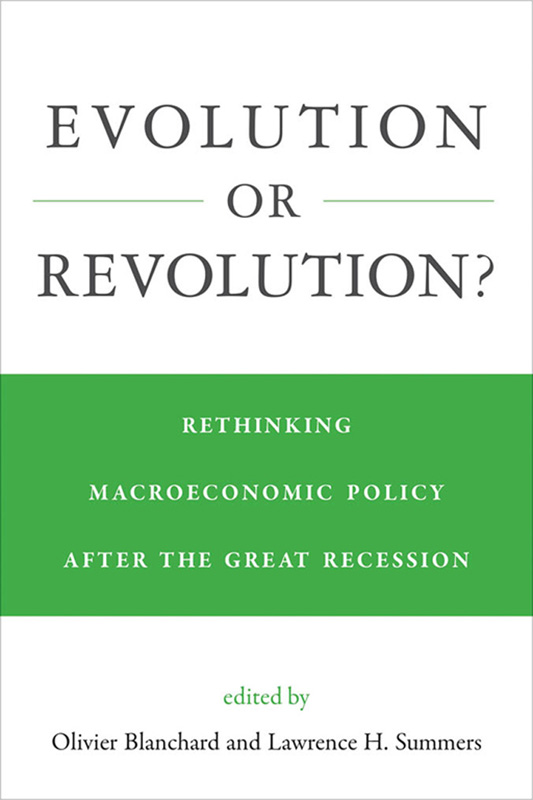2019 Massachusetts Institute of Technology and Peterson Institute for International Economics
All rights reserved. No part of this book may be reproduced in any form by any electronic or mechanical means (including photocopying, recording, or information storage and retrieval) without permission in writing from the publisher.
This book was set in Sabon by Toppan Best-set Premedia Limited. Printed and bound in the United States of America.
Library of Congress Cataloging-in-Publication Data
Names: Blanchard, Olivier (Olivier J.), editor. | Summers, Lawrence H.,
editor.
Title: Evolution or revolution? : rethinking macroeconomic policy after the
Great Recession / edited by Olivier Blanchard and Lawrence H. Summers.
Description: Cambridge, MA : MIT Press, [2019] | Conference proceedings. |
Includes bibliographical references and index.
Identifiers: LCCN 2018020783 | ISBN 9780262039369 (hardcover : alk. paper)
eISBN 9780262351263
Subjects: LCSH: Macroeconomics. | Fiscal policy. | Economic policy.
Classification: LCC HB172.5 .E946 2019 | DDC 339--dc23 LC record available at https://lccn.loc.gov/2018020783
ePub Version 1.0
Table of Contents
List of tables
- Chapter 11
- Chapter 16
- Chapter 19
- Chapter 23
List of figures
- Introduction
- Chapter 1
- Chapter 8
- Chapter 9
- Chapter 10
- Chapter 11
- Chapter 14
- Chapter 16
- Chapter 19
- Chapter 21
- Chapter 23
Guide
Preface
The 2008 financial crisis and Great Recession are no longer front and center as a policy challenge. The issue of how and when to apply restraint is now more dominant than the issue of how to increase demand. Worries about excessive exuberance in financial markets exceed those about insufficient confidence. After a period of great ferment in financial regulation, attention has shifted to questions of implementation and to concerns about areas where the pendulum may have swung too far.
In all these ways a sense of normalcy has returned to the global economy and to economic policy debates. While the change is welcome, it is slightly unsettling when one remembers that periods of complacency historically have a way of being rudely interrupted by adverse developments.
We therefore felt it worthwhile to continue the conferences titled Rethinking Macroeconomic Policy, a biennial series started in 2011 when Olivier Blanchard was the IMFs Chief Economist. And we were delighted when the Peterson Institute for International Economics offered to support and host the conference.
The three preceding conferences sought to bring cutting-edge thinking to bear on the new challenges thrown up by the financial crisis. The objective was to bring policymakers and scholars into closer proximity. Policymakers could benefit from new ideas coming from research, while researchers were encouraged to address policymakers most pressing issues.
Given the return of a sense of normalcy, we felt that this was an appropriate moment to distill lessons from the crisis and to explore critical issues. How should the experience of the crisis alter macroeconomic thinking and macroeconomic policy? Are policymakers prepared for the next crisis? Can more be done to prevent future crises? Should the experience of the crisis affect the way policy is carried out in normal times?
We also felt the recent events pointed up the importance of political economy issues for macroeconomics, particularly those associated with inequality and the current functioning of the international monetary and financial system.
The volume comprises the proceedings of the fourth Rethinking Macroeconomic Policy conference. After the introduction, which presents the issue of evolution versus revolution in macroeconomics after the crisis, there are five substantive sections. Each section begins with a background paper, followed by wide-ranging discussions by distinguished researchers and major policymakers. We cover five topics: monetary policy, fiscal policy, financial policy, inequality and political economy, and the international monetary and financial system.
The results are for the reader to judge. We came away from the conference with the perhaps predictable conclusion that while much had been learned, there was still much we needed to understand better. Certainly, the kind of complacency that preceded the recent crisis is unlikely to recur at least for many years. And the kind of blind faith in the self-restorative properties of economies that some expressed in the early phase of the crisis is now widely rejected. But issues such as how best to operate in a world where traditional monetary policy is unlikely to have its usual room for response when a downturn comes remain substantially unresolved.
Perhaps the only thing we can be certain of is that, owing to the pace of change in the structure of the global economy, rethinking macroeconomics will be an ongoing preoccupation in the years ahead. We hope this volume contributes to the effort.
Introduction: Rethinking Stabilization Policy: Evolution or Revolution?
Olivier Blanchard and Lawrence H. Summers
Nearly ten years after the onset of the Great Financial Crisis, both researchers and policymakers are still assessing the policy implications of the crisis and its aftermath. Previous major crises, from the Great Depression to the stagflation of the 1970s, profoundly changed both macroeconomic thinking and macroeconomic policy. The question is whether this crisis should and will have similar effects.
We believe it should, although we are less sure it will. Rather obviously, the crisis has forced macroeconomists to (re)discover the role and the complexity of the financial sector and the importance of financial developments, including financial crises, in affecting economic activity. But the lessons should go well beyond these observations and force us to question a number of cherished beliefs. Among other things, the events of the past ten years have put into question the presumption that economies are self-stabilizing and have raised again the issue of whether temporary shocks can have permanent effects.
These issues call for a reappraisal of macroeconomic thinking and macroeconomic policy. As the chapters look in more detail at the implications of specific policies, we make no attempt to be encyclopedic here and feel free to pick and choose the issues we see as most salient.
In the first section of this introduction, we review the response to two major previous crises, the Great Depression of the 1930s and the stagflation of the 1970s. The first led to the Keynesian revolution, a worry about destabilizing processes, a focus on aggregate demand and the crucial role of stabilization policies, and tighter constraints on the financial system. The second led instead to a partial rejection of the Keynesian model, a more benign view of economic fluctuations and the self-stabilizing properties of the economy, a focus on simple policy rules, and a more relaxed attitude with respect to the financial system. The question is then what the crisis we have just emerged from should and will do.
In the second section, we focus on what we see as the three main lessons of the last ten years. The first lesson, not surprisingly, has to do with the crucial role of the financial sector and the costs of financial crises. The second lesson is the complex nature of fluctuations, from the role of nonlinearities in leading to potentially exploding or imploding paths, to the limits of policy, to the persistent effects of shocks. The third lesson is that we are now and may be for the foreseeable future in an environment of low nominal and real interest rates, an environment that interacts with the first two factors and forces a rethinking not only of monetary policy but also of fiscal and financial policies.


